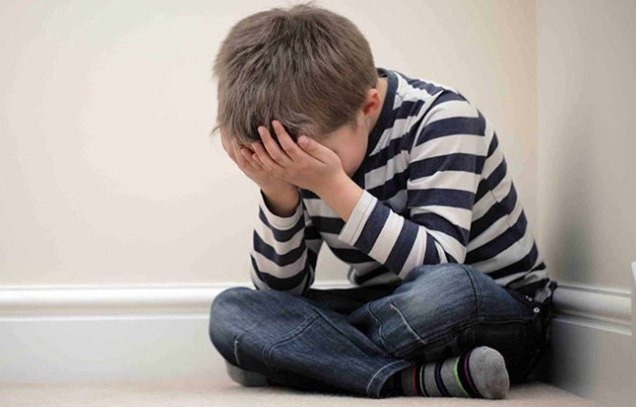Nikhil Prasad Fact checked by:Thailand Medical News Team Sep 14, 2025 5 months, 1 week, 2 days, 13 hours, 53 minutes ago
Medical News: COVID-19’s hidden impact on young people
A new study from the University of Utah has found that children and adolescents who had COVID-19 face a far greater risk of developing depression and anxiety compared to those who never caught the virus. The research highlights that infection itself, and especially the severity of illness, is tied to worrying increases in mental health problems among young people.
 COVID-19 Infection Linked to Depression and Anxiety in Children
COVID-19 Infection Linked to Depression and Anxiety in Children
This
Medical News report is based on an analysis of more than 154,000 children aged 6 to 15, using data from the Utah All Payers Claims Database. The researchers found that children who contracted COVID-19 in 2020 were 49 percent more likely to be diagnosed with depression or anxiety in 2021. The study carefully compared children with and without infection and considered factors such as age, gender, and existing health conditions to ensure accurate results.
Severe cases drive the highest risks
Severity played a major role. Children with moderate symptoms had a 40 percent higher chance of depression or anxiety, while those with severe infections requiring hospital or emergency care were 59 percent more likely to face mental health diagnoses. Overall, 9.2 percent of infected children developed depression or anxiety within a year, compared to only 5.3 percent of those without infection.
Girls and vulnerable children most at risk
The study also found that girls were nearly twice as likely as boys to develop these mental health conditions. Children with conditions such as ADHD, sleep disorders, obesity, or chronic pain showed even higher risks. These findings suggest that COVID-19 may worsen existing vulnerabilities, adding new burdens to children already struggling with health issues.
Social and emotional pressures deepen the problem
Beyond the physical illness, the psychological challenges of infection were significant. Hospital visits, fear of complications, stigma from being infected, and disruptions to school and friendships all added to children’s stress. Researchers warn that missed school and falling behind academically may have made recovery even harder. They urge schools and community groups to provide counseling, peer support, and tailored educational help for affected children.
What this means for the future
The study offers strong evidence that COVID-19 infections are linked with long-term mental health impacts in children, a connection not clearly shown in earlier smaller studies. By using a large state-wide database, the researchers were able to demonstrate the scale of the problem and highlight the urgent need for early intervention and mental health resources.
Final thoughts
The findings serve as a warning that the pandemic’s legacy goes far beyond physical illness. If ignored, the mental health consequences for today’s children could stretch well into adulthood, shaping their development and future well-being. Healthcare providers, schools, and
policymakers must act now to ensure proper care, build resilience, and prevent a long-term wave of mental health struggles in young people. Addressing these issues today will protect future generations from even deeper challenges.
The study findings were published in the peer reviewed journal: PLOS One
https://journals.plos.org/plosone/article?id=10.1371/journal.pone.0331984
For the latest COVID-19 News, keep on logging to Thailand
Medical News.
Read Also:
https://www.thailandmedical.news/news/european-study-alarmingly-finds-that-covid-19-infections-in-toddlers-alter-genes-and-raises-risk-of-type-1-diabetes
https://www.thailandmedical.news/news/covid-19-linked-kidney-damage-in-children-raises-new-concerns
https://www.thailandmedical.news/news/new-study-warns-of-increased-risk-for-neuropsychiatric-disorders-in-children-after-sars-cov-2-infection
